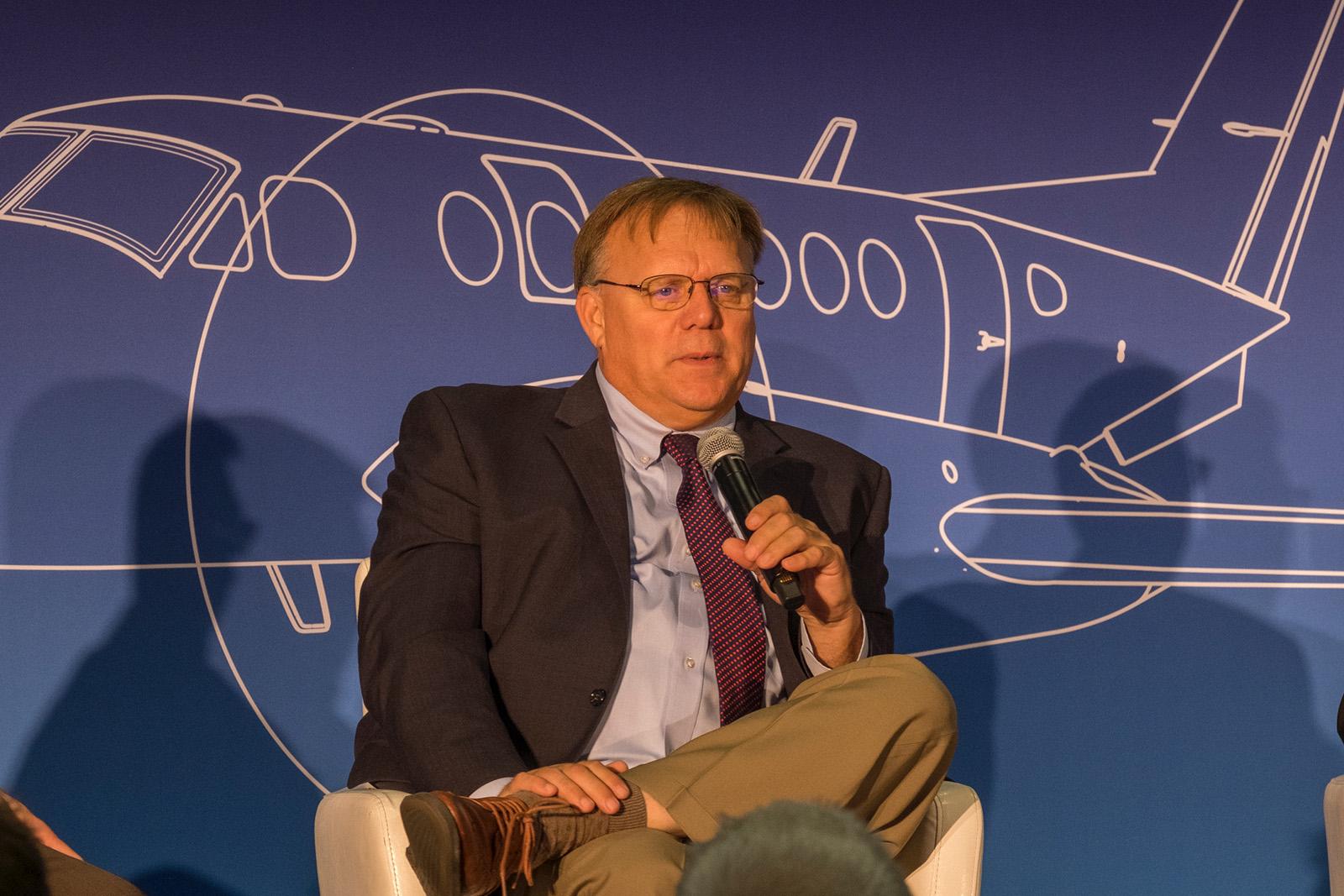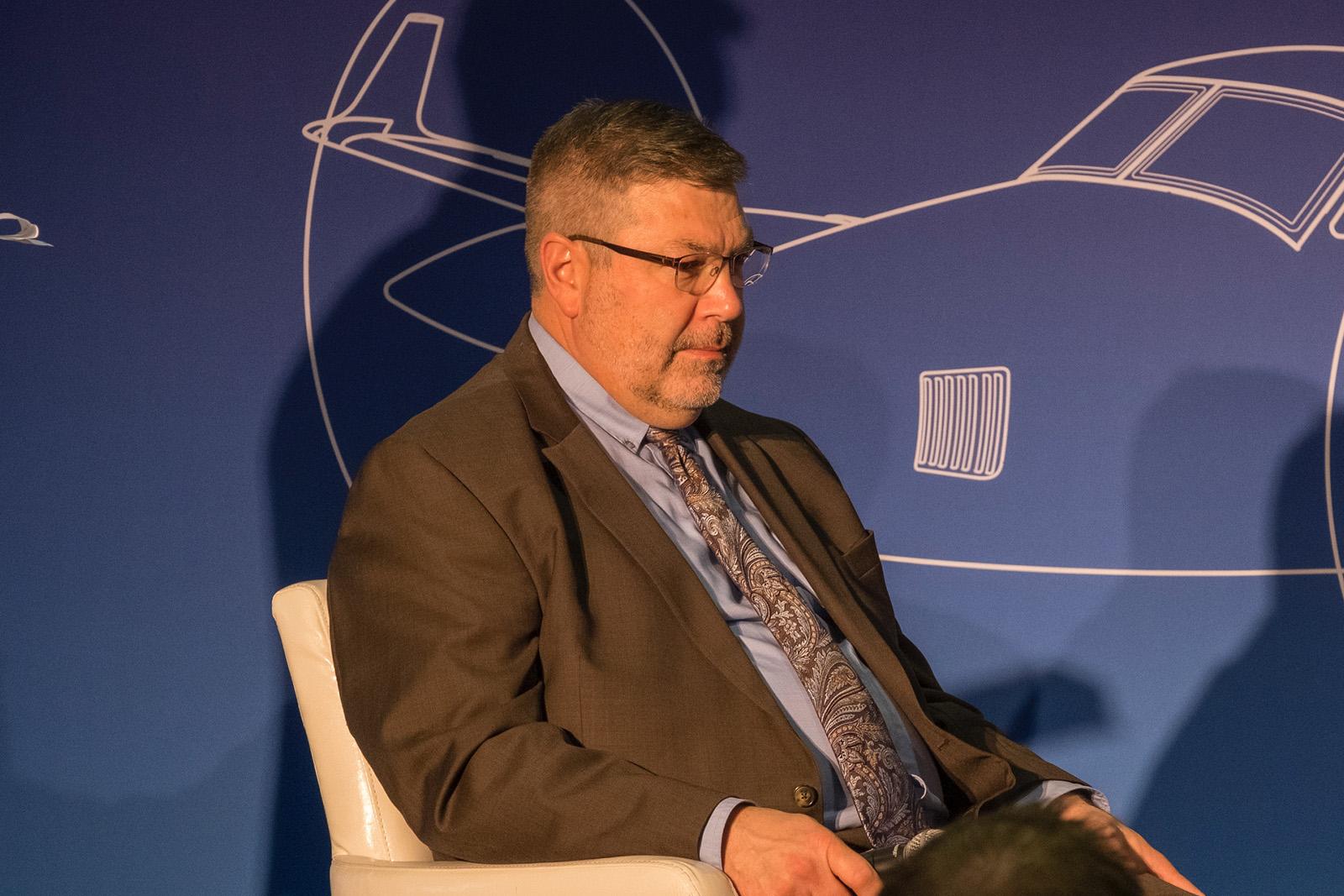
David Boulter, the FAA’s Acting Administrator for Aviation Safety, speaks at the NBAA Business Aviation Convention & Exhibition (NBAA-BACE) is “Meet the Regulators” panel.
One of the “must-see” events at every year’s NBAA Business Aviation Convention & Exhibition (NBAA-BACE) is “Meet the Regulators,” a chance for business aircraft operators to pose questions and vent their frustrations to members of the FAA. This year I was particularly interested in hearing from David Boulter, the FAA’s Acting Administrator for Aviation Safety. He did not disappoint.
“We are public servants,” Boulter began, “and we have fallen down miserably. We have no excuses to hide behind, we just need to fix it.” His sentiments were echoed by Wes Mooty, the Acting Deputy Executive of the Flight Standards Service in the FAA’s Aviation Safety Organization. Answering a question about “FSDO shopping” to find Flight Standards District Offices that are more responsive, Mooty said, “There should be no reason to switch FSDOs, and if there is, it is because we have failed you. Each FSDO should be doing the same thing, the same way.”
He went on to say that if your paperwork ends up at a FSDO that is for some reason behind, they should automatically forward it to another FSDO. With Letters of Authorization (LOA), for example, there is a national list and it should not matter which FSDO you are assigned to.

Of course, the reality of these processes is that things do not always go as they should. Boulter said that you should identify the principle inspector handling your case and if you do not get a response within a few days, you should “push it up the chain.” A member of the audience noted that since the FAA no longer posts a directory at FAA.gov, it is increasingly difficult to know who to call and how. The FAA representatives on stage did not have any answers to that complaint.
Much of the problem, we are told, is that the FAA is shorthanded and struggling to stay fully staffed. The agency is taking measures to recruit personnel, as well as come up with alternative means of getting much of their work done. For example, the FAA has started allowing some “remote technology” line checks, using cameras instead of live inspectors. We can expect written guidance on this topic next year. They are also considering allowing company standards pilots to accomplish Part 135.299 line checks.
No matter the cause of the delays operators have been facing, it is apparent the regulators are aware of the problem, agree that it is unacceptable and are implementing solutions.
